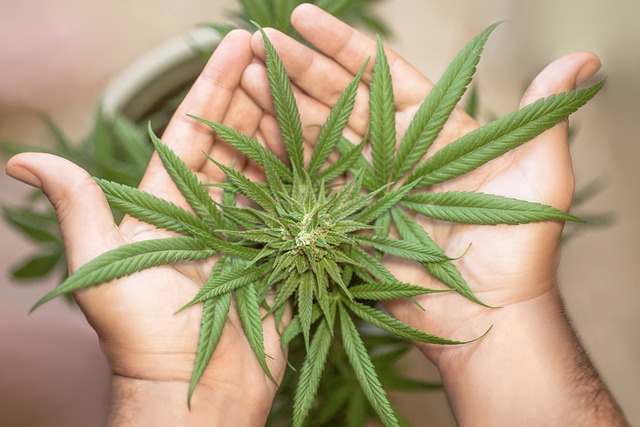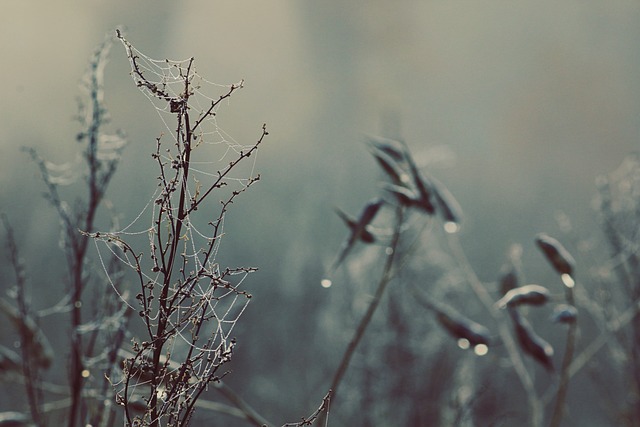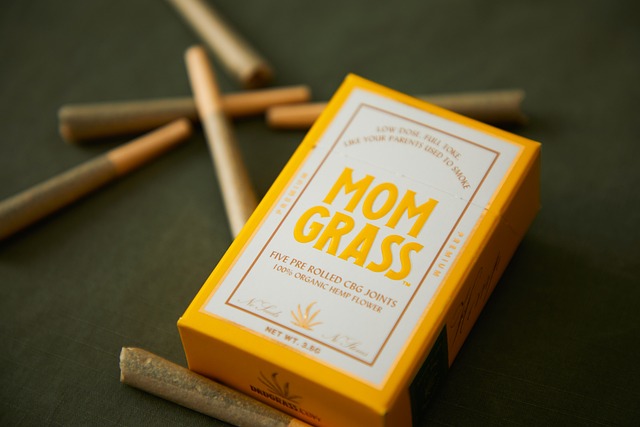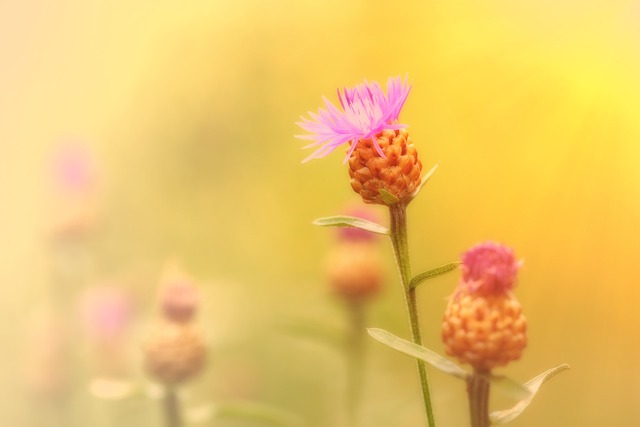Delta-9-tetrahydrocannabinolic acid (THCA) and cannabidiol (CBD), both non-psychoactive compounds found in cannabis, are being evaluated for their potential to enhance sleep quality. THCA, which is the precursor to THC, may promote restful sleep by engaging with the endocannabinoid system and supporting healthy sleep patterns without inducing psychoactive effects. Studies suggest that THCA interacts with CB1 and CB2 receptors, offering a potential therapeutic avenue for sleep aid, particularly for those struggling to fall asleep. On the other hand, CBD is known for its calming and relaxing effects, which may improve overall sleep quality by mitigating anxiety and pain. The choice between THCA and CBD for sleep enhancement depends on individual needs, as they interact with different receptors; THCA might be more effective for initiation of sleep, while CBD could be better for maintaining a stable sleep cycle throughout the night. Users should consult healthcare professionals to navigate the complexities of cannabinoid use, considering legal regulations and personal health factors when exploring THCA or CBD for sleep improvement. This comparison highlights the distinct mechanisms of action between THCA and CBD within the endocannabinoid system and underscores the importance of a tailored approach to optimize sleep quality.
Delta-9-tetrahydrocannabinolic acid (THCA) is garnering attention in the realm of natural remedies for restful sleep. This comprehensive article delves into the potential benefits of Indacloud thca flower, a non-psychoactive cannabinoid found in the Cannabis sativa plant. We explore how THCA may serve as a compelling alternative to CBD for improving sleep quality. By examining the scientific evidence on its effects on sleep architecture, we aim to shed light on the optimal strains of THCA flower that could enhance your nightly rest. Furthermore, we navigate the complex legal and safety considerations surrounding its use. Join us as we uncover the intricacies of THCA versus CBD for sleep, ensuring you have all the information needed to make informed decisions.
- Unraveling THCA's Potential for Restful Sleep: A Closer Look
- THCA vs CBD: Understanding the Differences and Their Impact on Sleep Quality
- The Science Behind THCA's Effects on Sleep Architecture
- Optimal THCA Flower Strains for Enhancing Sleep
- Navigating Legality and Safety Considerations When Using THCA for Sleep
Unraveling THCA's Potential for Restful Sleep: A Closer Look

Delta-9-tetrahydrocannabinolic acid (THCA) and cannabidiol (CBD) are two non-psychoactive compounds found in the cannabis plant that have been gaining attention for their potential health benefits, including their effects on sleep. THCA, which is the raw form of the well-known psychoactive compound THC, has been observed to possess a range of therapeutic properties without the intoxicating effects associated with THC. As researchers delve into the potential of THCA for promoting restful sleep, early studies suggest that THCA may interact with the body’s endocannabinoid system in a way that supports healthy sleep patterns. Unlike THC, THCA does not produce psychoactive effects, making it a more suitable option for individuals seeking sleep aid without altering their mental state.
In contrast to THCA, CBD has been widely recognized for its calming and relaxing properties, which can indirectly benefit sleep quality. CBD interacts with the body’s cannabinoid receptors in a manner that may help reduce anxiety and pain, conditions often associated with sleep disturbances. The anxiolytic (anxiety-reducing) effects of CBD could potentially allow for a more restful state conducive to sleep. Both THCA and CBD have been found to affect different receptors in the body; thus, their effects on sleep may differ. For instance, THCA may be more effective for those experiencing issues falling asleep due to its sedative properties, while CBD might be preferable for individuals who experience sleep disruption throughout the night due to its effect on maintaining a stable sleep cycle. When considering THCA versus CBD for sleep, it’s important to evaluate individual needs and consult with healthcare professionals to navigate the best option for one’s specific sleep challenges.
THCA vs CBD: Understanding the Differences and Their Impact on Sleep Quality

THCA, or tetrahydrocannabinolic acid, is a non-psychoactive cannabinoid found in the Cannabis sativa plant. While it’s most commonly known for its potential conversion into the psychoactive compound THC upon heating, THCA itself exhibits distinct properties that can influence sleep quality. Unlike its well-known counterpart CBD, or cannabidiol, which is also non-psychoactive, THCA binds to both CB1 and CB2 receptors differently, potentially offering a different therapeutic profile for sleep disorders. Studies suggest that THCA may help regulate circadian rhythms and promote more restful sleep due to its interaction with the endocannabinoid system, which plays a crucial role in maintaining bodily homeostasis.
CBD, on the other hand, interacts with a broader range of receptors beyond CB1 and CB2, including serotonin receptors, which are associated with mood regulation and sleep-wake cycles. Research indicates that CBD may help alleviate anxiety and chronic pain, two common impediments to achieving quality sleep. By promoting relaxation without inducing psychoactive effects, CBD has become a popular choice for individuals seeking better sleep. Unlike THCA, CBD’s effects are not dependent on being decarboxylated; it can be consumed in various forms, including oils, capsules, and topicals, making it versatile for different sleep challenges. Both compounds offer unique benefits that can influence sleep quality, and understanding the differences between THCA and CBD is essential for those looking to enhance their sleep experience naturally. When considering THCA vs CBD for sleep, it’s important to explore how each might interact with one’s unique endocannabinoid system and sleep patterns.
The Science Behind THCA's Effects on Sleep Architecture

Delta-9-tetrahydrocannabinolic acid, commonly known as THCA, is a non-psychoactive cannabinoid found in raw cannabis plants and has been gaining attention for its potential effects on sleep architecture. Unlike its psychoactive counterpart, delta-9-THC, THCA does not induce intoxication, making it a viable option for individuals seeking the therapeutic benefits of cannabis without the high. Studies suggest that THCA interacts with the body’s endocannabinoid system by binding to both CB1 and CB2 receptors, which can influence sleep patterns. Preliminary research indicates that THCA may possess sedative properties, potentially aiding in the initiation of sleep. This could be beneficial for those experiencing insomnia or sleep disturbances.
When considering cannabinoids for sleep enhancement, comparing THCA to CBD is crucial. Both compounds have been studied for their effects on sleep architecture, but they differ significantly in their molecular structure and effects. CBD is known for its relaxing effects without the psychoactive impact of THC. It promotes relaxation and can help reduce anxiety, which often accompanies sleep disorders. While both THCA and CBD may influence sleep, THCA’s interaction with the CB1 receptors, which are densely populated in the brain and play a role in regulating neurotransmitters, suggests a more direct impact on the sleep-wake cycle. This distinction makes THCA particularly interesting for further research into its potential as a sleep aid, separate from its psychoactive forms or other cannabinoids like CBD. As such, both THCA and CBD have distinct roles and could potentially be used in complementary ways to optimize sleep quality. Users interested in exploring these cannabinoids for sleep benefits should do so with guidance from healthcare professionals, considering individual differences in endocannabinoid system responsiveness and potential interactions with other medications.
Optimal THCA Flower Strains for Enhancing Sleep

When exploring cannabinoids for improved sleep, THCA (Tetrahydrocannabinolic Acid) and CBD (Cannabidiol) are two compounds that often come under the microscope. THCA is the acidic precursor to THC (Tetrahydrocannabinol), the psychoactive component of cannabis, and it’s gaining attention for its potential therapeutic benefits, including promoting restful sleep. Unlike CBD, which is non-psychoactive and interacts with the body’s endocannabinoid system to induce a calming effect, THCA may offer a different set of properties due to its intoxicating nature when converted to THC upon decarboxylation.
For those seeking strains high in THCA for sleep enhancement, certain cultivars stand out. The Indica-dominant strain ACDC, for instance, is known for its high THCA content and low CBD levels, providing a balanced effect that can help users relax without overpowering psychoactive effects. Another notable option is the Strawberry Banana strain, which offers a potent combination of flavors along with significant THCA levels. This strain’s sedative properties can be particularly beneficial for individuals looking to combat insomnia or achieve more restful sleep. Additionally, the Harlequin strain, which contains a balanced THC to CBD ratio, may also be effective for sleep, offering both relaxation and a clear-headed feeling. When choosing a THCA-rich flower for sleep, it’s essential to consider factors such as individual sensitivity, tolerance, and local legal considerations. Always source your THCA flowers from reputable dispensaries or cultivators to ensure safety and efficacy.
Navigating Legality and Safety Considerations When Using THCA for Sleep

THCA, or tetrahydrocannabinolic acid, is a non-psychoactive cannabinoid found in the Cannabis sativa plant that has garnered attention for its potential therapeutic properties, including its impact on sleep. When considering the use of THCA for sleep, it’s crucial to navigate the complex legal landscape surrounding hemp-derived products. While the 2018 Farm Bill legalized hemp-derived CBD and THCA at the federal level in the United States, regulations vary by state, and some products may contain trace amounts of THC, which could lead to legal complications in certain jurisdictions. Users must be well-informed about their local laws before incorporating THCA into their sleep regimen.
Safety is another critical consideration when using THCA for sleep. Unlike its psychoactive counterpart THC, THCA does not induce a high; however, it’s still a powerful compound that interacts with the body’s endocannabinoid system. Consumers should approach THCA products cautiously, starting with low doses to assess their individual response. It’s advisable to consult with a healthcare provider before using THCA for sleep, especially if one is taking other medications or has underlying health conditions. When it comes to comparing THCA versus CBD for sleep, both compounds have unique profiles: THCA may be more sedating and analgesic, while CBD is known for its calming and anti-anxiety effects, which can also promote better sleep. Users should consider their specific sleep challenges and personal preferences when choosing between these cannabinoids, always prioritizing legal compliance and personal safety in their pursuit of restful sleep.
THCA, or tetrahydrocannabinolic acid, presents a promising avenue for those seeking restful sleep. This in-depth exploration has shed light on how THCA, distinct from its well-known counterpart CBD, interacts with the body’s endocannabinoid system to potentially improve sleep quality and architecture. As we’ve discovered, certain strains of THCA flower appear to be particularly effective for this purpose. However, it is imperative to consider legal and safety factors when incorporating THCA into one’s sleep routine. By understanding the nuanced differences between THCA and CBD for sleep, consumers can make informed decisions that align with their needs and local regulations. Ultimately, the potential of THCA in promoting restful sleep is a subject of growing interest and deserves further research to fully realize its benefits and limitations.
